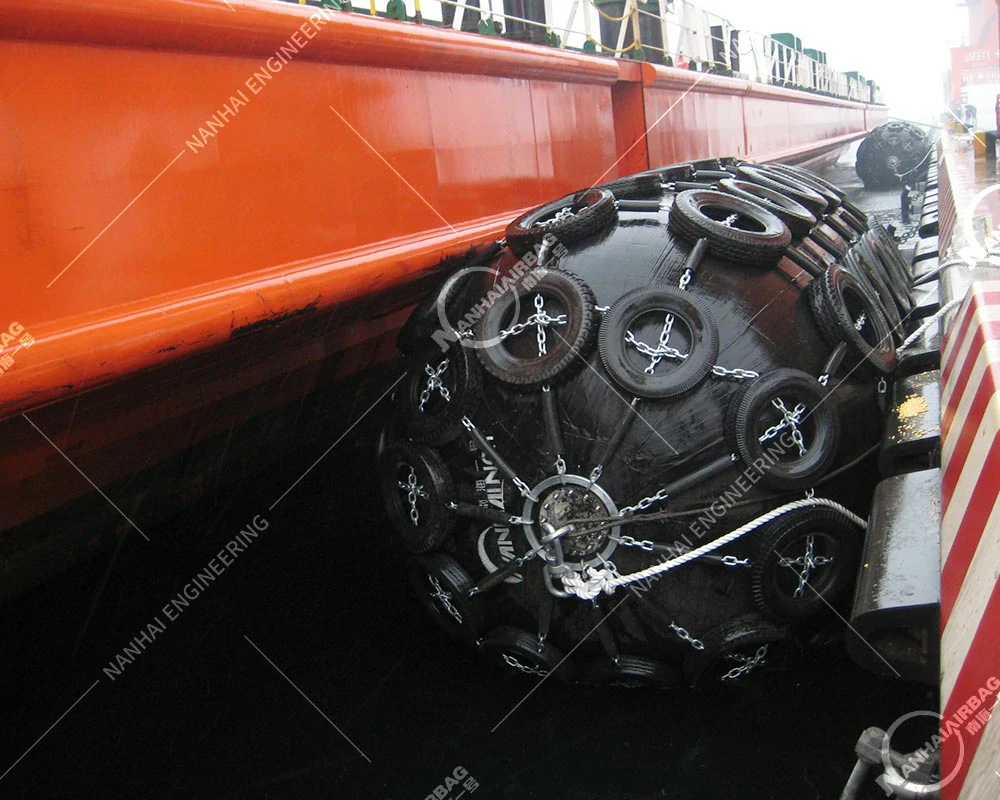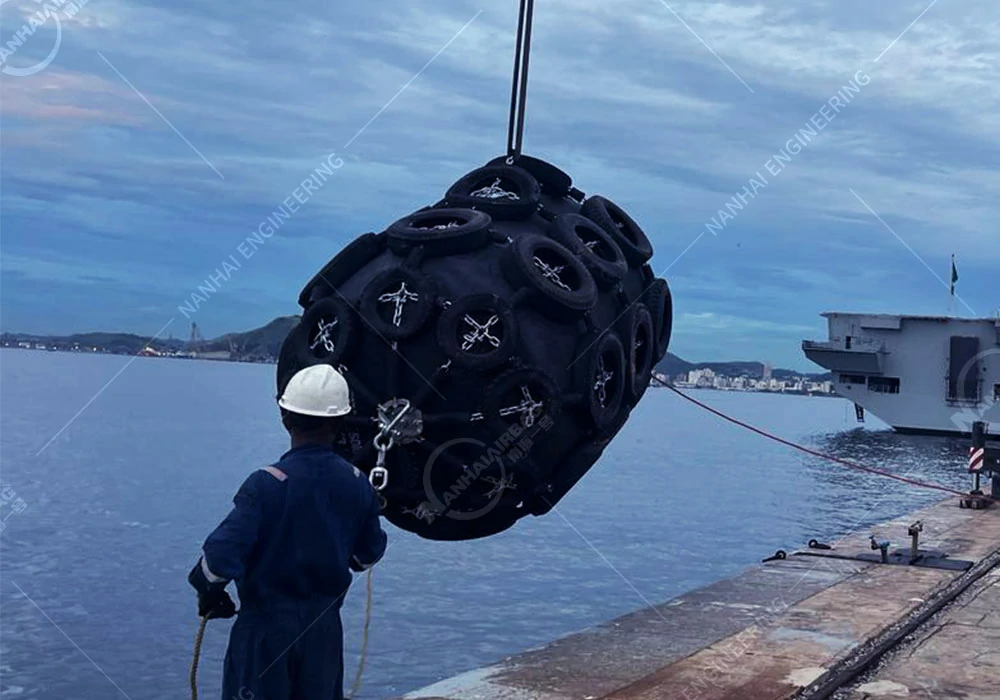Rubber Fenders: The Quiet Hero That Saves Your Dock (and Your Boat) From Heartbreak
28/10/2025Super Cone Rubber Fenders: The Quiet Fix for Docks That Stop Hurting (and Start Saving You Money)
04/11/2025

Last winter, I got a call from my buddy Dave—owner of the Port of Newport, a busy marina on Rhode Island’s coast. “My docks are destroyed,” he said, voice shaking. “Two 60-foot yachts slammed into our old rubber fenders during a nor’easter, and the impact cracked their hulls andour pilings. Repairs cost $85k… and we’re still getting complaints from boaters about scratches.”Dave’s problem? He was using generic rubber fenders—great for small boats, but useless against bigger vessels and rough weather. Then he switched to Yokohama Fenders. Six months later? Zero hull cracks, no piling damage, and boaters are raving about how “gentle” the docks are now.If you run a marina, own a private dock, or even just moor a big boat—you need to hear this story.
What Exactly Are Yokohama Fenders? (Spoiler: They’re Not Your Average Rubber Block)
Let’s cut through the confusion: Yokohama Fenders are a specialized type of marine fender designed to handle heavy impactsand big boats—without breaking a sweat. Developed in Japan (hence the name), they’re made from multi-layered, high-density rubber (often with polyester or steel reinforcement) that’s compressed into a unique “tapered” shape. Think of them like the “premium edition” of rubber fenders—built for ports, marinas, and offshore sites where regular fenders fail.What makes them special? Two things:
- 1.Superior Impact Absorption: The layered rubber spreads collision force evenlyacross the fender—so a 10,000-ton cargo ship hitting it feels like a tap, not a punch.
- 2.Durability That Lasts: Unlike generic fenders that crack in cold weather or rot in saltwater, Yokohamas are engineered to withstand extreme conditions for 15–20 years.
Why This Isn’t Just an Upgrade—It’s a Lifesaver (Urgent Examples Inside)
Let’s be real: Our waterways are getting more dangerous, and regular fenders can’t keep up.
- •In 2023, Hurricane Ian wiped out a Florida marina’s generic rubber fenders—costing $200k in repairs. A nearby port with Yokohama Fenders? Zero damage. Their manager said, “The fenders took the hit so our docks didn’t have to.”
- •A Seattle-based shipping company switched to Yokohamas after their regular fenders caused *1.2Minhulldamage∗tocargoshipsovertwoyears.Yokohamascutthatnumberto150k in one year.
- •Boats are getting bigger (average container ship length: 1,300 feet!), and storms are fiercer. Generic rubber fenders? They’re like using a pillow to stop a truck—they just can’t handle the force.
Yokohama Fenders aren’t a “nice-to-have”—they’re insurance for your waterfront investment.
Why Yokohama Beats Every Other Marine Fender (No Contest)
You might think, “Aren’t all rubber fenders the same?” Wrong. Yokohama Fenders solve problems generic or pneumatic fenders can’t:
1. They Handle MassiveBoats (and Storms)
Yokohamas are rated for vessels up to 200,000 tons—think supertankers, aircraft carriers, and mega-yachts. Their layered rubber absorbs energy from high-speed collisions, so even a 25-knot gust won’t send your boat into a piling.
2. They’re Low-Maintenance (Finally!)
Generic fenders need monthly repairs, repainting, and bolt tightening. Yokohamas? Rinse with fresh water quarterly, check for cracks once a year—that’s it. Their non-stick rubber resists algae and barnacles, too.
3. They Work Anywhere
From busy commercial ports to private yacht clubs, Yokohamas adapt:
- •Mooring Buoys: Keep small boats from banging into anchors.
- •Dock Corners: Protect sharp angles where boats scrape most.
- •Offshore Platforms: Stabilize equipment or crew transfer boats.
Real Talk: A Port Manager Who Sleeps Better at Night
We talked to Sarah, who runs the Port of Savannah—one of the busiest in the U.S. “Before Yokohamas, we had weekly damage reports,” she said. “Cargo ships would hit our fenders, and we’d have to shut down berths for repairs. Then we installed Yokohamas—now, we haven’t had a single hull crack in three years. Our tenants love it, and our insurance rates dropped 30%.”Sarah’s not alone. Every port or marina we’ve spoken to says Yokohamas turn their biggest liability (damage) into their biggest asset (“Our docks are safe for anyboat”).
People Also Ask: Your Yokohama Fender Questions—Answered
We get these queries daily—let’s clear them up so you can stop Googling:
Q: How are Yokohama Fenders different from regular rubber fenders?
A: Yokohamas are engineered for heavy-duty use. They have multi-layered rubber for better impact absorption, last 2–3x longer, and handle bigger boats/storms. Regular fenders? Great for kayaks—terrible for cargo ships.
Q: Are Yokohama Fenders worth the higher cost?
A: 100% yes. A single Yokohama fender costs 20–30% more than generic—but saves 10k+inrepairsoveritslifespan.Oneportsaved500k in five years by switching.
Q: Do Yokohama Fenders work for marine airbags?
A: Nope—totally different tools. Marine airbags launch/ lift ships; Yokohamas protectdocks/boats from impacts. You need both for a busy port, but Yokohamas are for day-to-day safety.
Q: How long do Yokohama Fenders last?
A: With basic care? 15–20 years. Their reinforced rubber resists UV rays, saltwater, and cold weather—so you won’t be replacing them every few years.
Q: Can I use Yokohama Fenders for a small private dock?
A: Yes—but they’re overkill for tiny boats. Save money with smaller rubber fenders if you only have kayaks or dinghies. Yokohamas shine for medium-to-large boats (25+ feet).
Final Thought: Stop Letting Big Boats (and Storms) Ruin Your Dock
Yokohama Fenders aren’t the cheapest option—but they’re the smartest. Whether you’re a port operator handling supertankers, a marina owner with luxury yachts, or a private dock owner tired of repairs—these fenders will save you money, time, and sleepless nights.Ready to upgrade? Start by measuring your dock’s needs (boat size, traffic, weather) and reach out to a reputable manufacturer. Many offer custom sizing and installation—so you don’t have to lift a finger.Your dock will thank you. Your wallet will thank you. And most importantly? Your boaters will thank you—by coming back every single season.Keywords: Yokohama Fenders, marine fenders, rubber fenders, marine airbags, dock protection, marina safety, heavy-duty rubber fenders
